
Premier Wen Jiabao said on Wednesday during an inspection tour of the National Development and Reform Commission, the country's top economic planning agency, that issues regarding consumer prices should "never be underestimated" and that China should better address relations between economic growth, structural reform and inflation to keep the economy expanding at a reasonable level.
China's consumer price index, a main gauge of inflation, rose 2.6 percent year-on-year in 2012, well below the government's annual target of keeping inflation under 4 percent. However, inflation picked up steam in December and grew 2.5 percent, compared with 2 percent increase seen in November and the whole year's slowest pace of 1.7 percent in October, according to the National Bureau of Statistics.
Vegetable prices surged in December contributing about 60 percent to the CPI rebound, according to Ma Jiantang, head of the National Bureau of Statistics.
"The current price increases of farm products will influence the CPI in the short term, but won't have much of an impact on the full-year development," said Xu Wei, a researcher at the China Center for International Economic Exchanges.
Yi Gang, deputy head of the People's Bank of China, warned during the World Economic Forum in Davos recently that China could see its inflation rise to 3 percent or higher this year.
According to a note from the Financial Research Center of the Bank of Communications, the CPI is in an upward trend in 2013 as economic growth bounced back in the fourth quarter of last year and pork prices keep rising. Imported inflation due to the quantitative easing measures in developed economies and rising costs at home are also to blame, it added.
Qu Hongbin, HSBC China's chief economist, wrote in an article on the Chinese website of the Financial Times on Thursday that the CPI rise will likely be moderate in 2013 amid a moderate economic rebound. But Qu added that the inflation is open to the supply impact, especially because food prices account for more than 30 percent of the CPI but are sensitive to weather changes.
"The tight supply of vegetables in recent years reflects the low modernization of supply chains as China's supply chain costs are the double of those in developed economies," said the ministry's spokesman, Yao Jian.

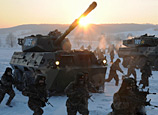
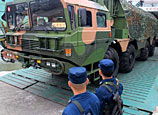

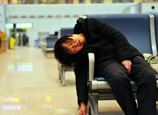
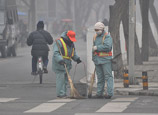



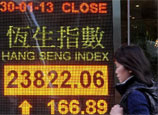









![]()
